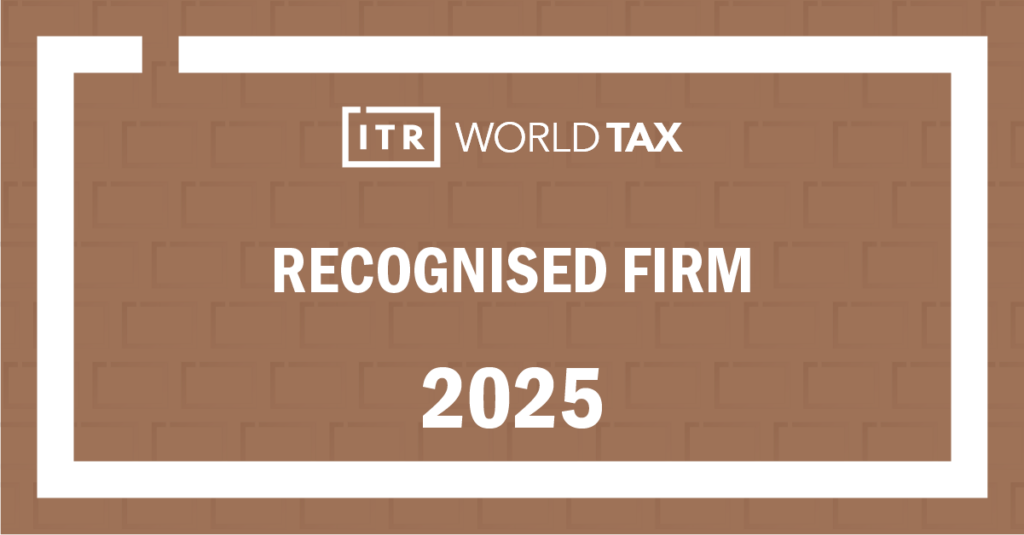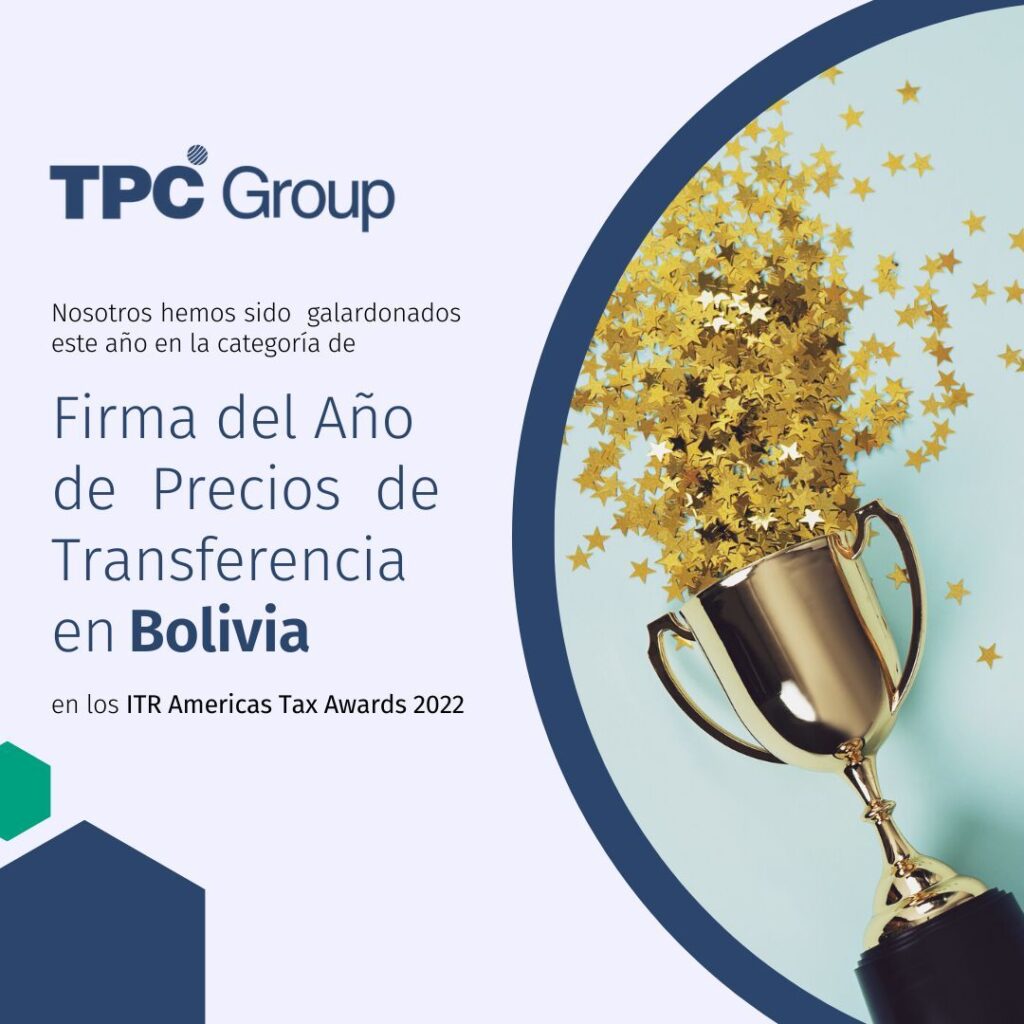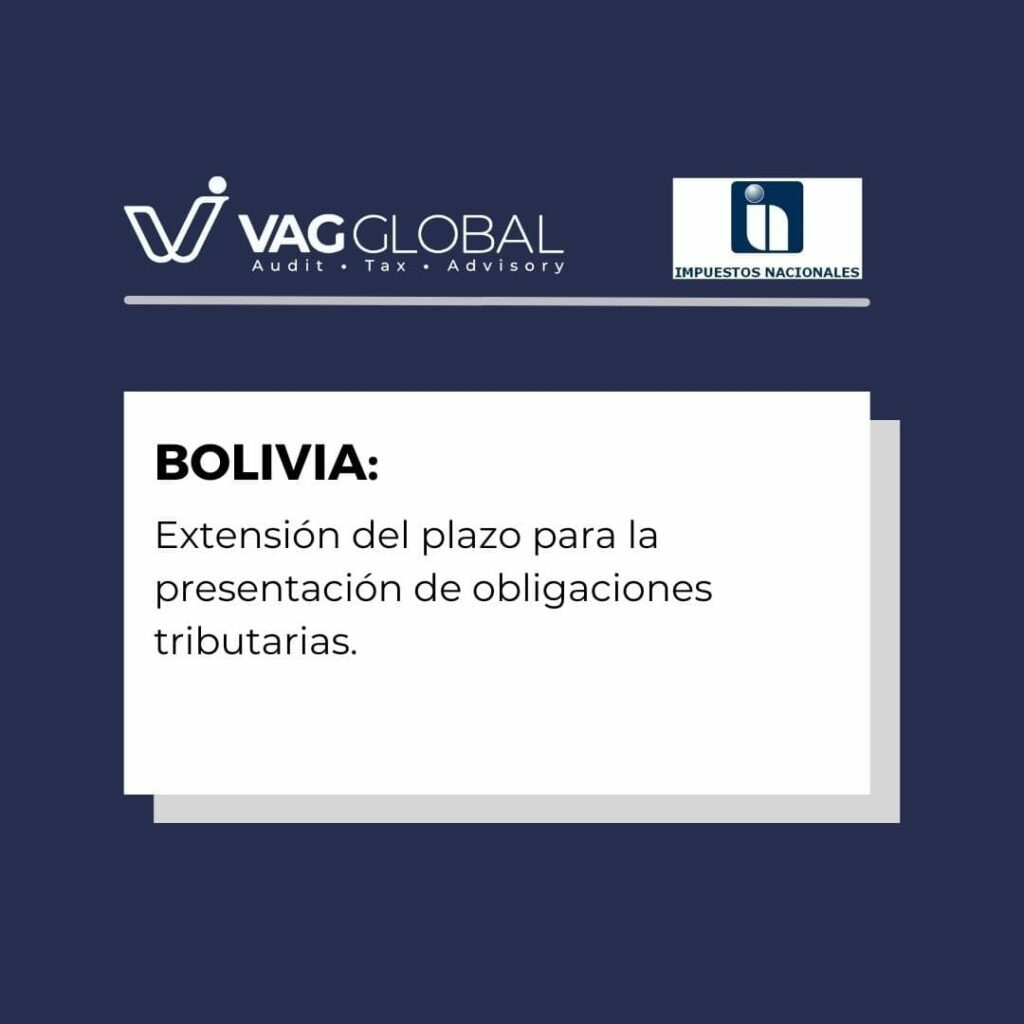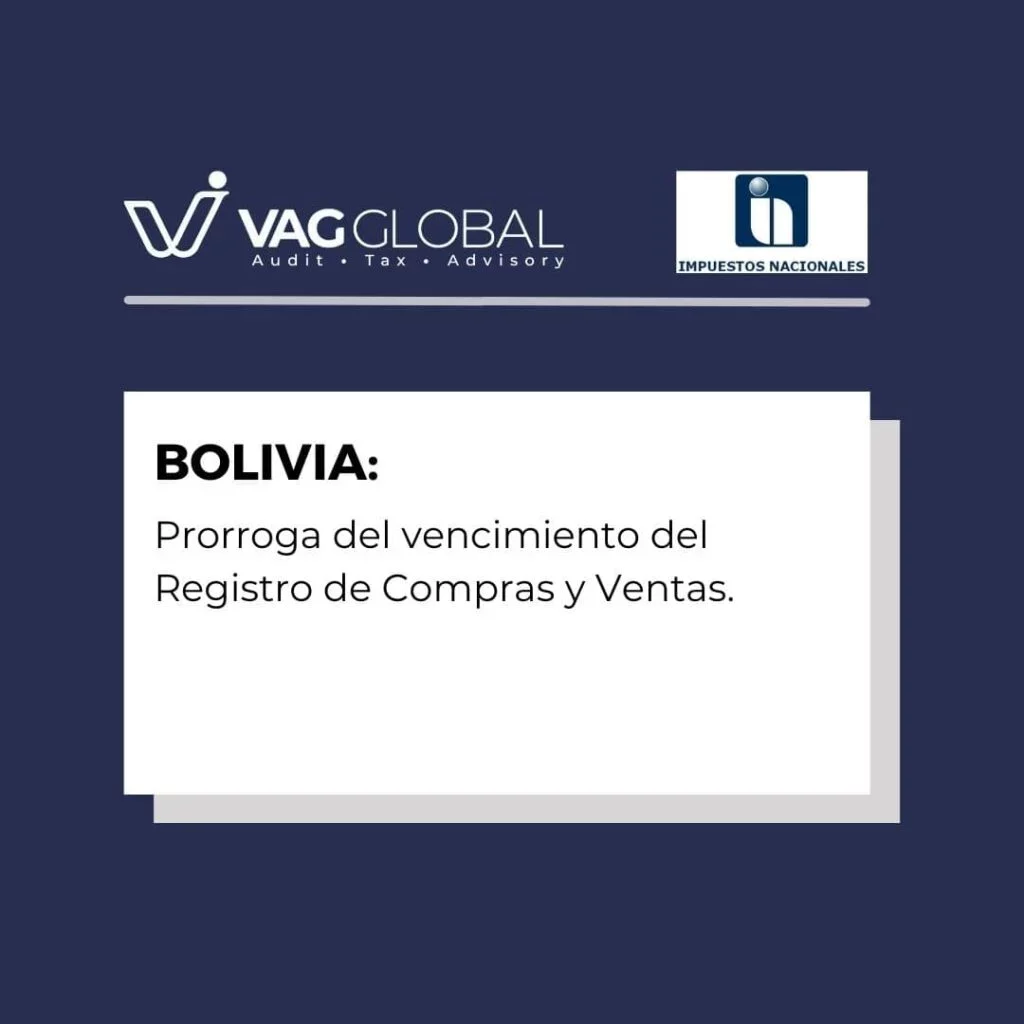Concepto y Regulación en Bolivia
La Legislación de Precios de Transferencia en Bolivia no consta de larga data, siendo en 2014 el año en el cual se introduce la normativa en dicha materia, a través de la Ley N°549 y la Ley N°516 o «Ley de Promoción de Inversiones«, la cual modifica los Artículos 45, 45 bis y 45 ter de la Ley N°843 (la Ley).
En dicho año, también se publica el Decreto Supremo N°2227, el cual reglamenta lo señalado en la Ley en mención, en este se regula supuestos de vinculación, metodología, documentación a presentar, entre otros lineamientos.
Posteriormente, en 2015 se publicó la Resolución Normativa de Directorio (RND) No.10-0008-15, que establece los sujetos obligados a presentar el Estudio de Precios de Transferencia y la Declaración Jurada Informativa; así como los plazos de presentación y forma.
Si bien, la normativa boliviana en dicha materia no había mencionado a la Organización para la Cooperación y Desarrollo Económico (OCDE) hasta ese momento, es recién en 2017, que mediante RND 101700000001, el Servicio de Impuesto Nacionales (SIN) hace referencia a esta organización al incorporar el listado de países de baja o nula tributación.
Principio de Plena Competencia: Concepto
También denominado principio de «Arm’s Length«, tiene como fundamento el que los precios pactados entre partes relacionadas se encuentren acorde a valor de mercado, tal como si lo hubiesen pactado partes independientes.
Dicho principio se encuentra también regulado en la legislación boliviana de Precios de Transferencia, en el Artículo 45 de la Ley N°843, el cual señala que las operaciones los precios pactados en operaciones comerciales y/o financieras entre partes vinculadas deberán ser aquellos que se hubieran pactado entre partes independientes.
Criterios para identificar empresas relacionadas o vinculadas
De acuerdo al tercer párrafo del Artículo 45 de la Ley, se configurará que dos o más empresas son partes vinculadas cuando, una persona sea natural o jurídica participe en la dirección, control, administración o posea capital de otra empresa. Dicha vinculación también se configurará cuando un tercero, de manera directa o indirecta, participe de acuerdo a lo señalado en el párrafo anterior en dos o más empresas.
En relación a ello, el Artículo 2 del D.S N°2227 señala,
I. A los efectos del Artículo 45 de la Ley Nº 843, se consideran partes vinculadas, cuando:
| NUMERAL DE VINCULACION | TIPO DE VINCULACION |
|---|---|
| Num. 1. | Una persona natural o jurídica nacional participe directamente o a través de terceros en la dirección, control, administración o posea capital en una o más empresas del exterior o, sucursales, filiales o subsidiarias de empresas del exterior que realicen operaciones en territorio nacional. |
| Num. 2. | Una persona natural o jurídica del exterior, participe directamente o a través de terceros en la dirección, control, administración o posea capital en una o más empresas nacionales o sucursales, filiales, o subsidiarias de empresas del exterior que operen en territorio nacional |
| Num. 3. | Una persona natural o jurídica con operaciones en territorio nacional que mantenga relaciones comerciales y/o financieras directas o indirectas, con personas naturales o jurídicas domiciliadas o que realicen operaciones en países o regiones con baja o nula tributación |
| Num. 4 | Una empresa sucursal, filial o subsidiaria en territorio nacional mantenga operaciones con su casa matriz del exterior o viceversa |
| Num. 5 | Se realicen operaciones comerciales y/o financieras entre una sucursal, filial o subsidiaria situada en territorio nacional y otra del exterior de una misma casa matriz |
| Num. 6 | Se realicen operaciones comerciales y/o financieras entre una empresa nacional y otra en el extranjero, cuyos propietarios, accionistas, socios, gerentes, miembros de directorio o personal jerárquico tengan parentesco hasta cuarto grado de consanguinidad y segundo de afinidad |
II. Además de las descritas, a propuesta de la Administración Tributaria y previa evaluación del Comité Técnico de Precios de Transferencia, se incorporará mediante Decreto Supremo, otras formas de vinculación, cuando las operaciones o transacciones no se hayan realizado en condiciones similares a las efectuadas entre partes independientes en operaciones comparables de mercado.
Asimismo, respecto a los países o regiones de baja o nula tributación se deberá tener en cuenta el Anexo a la Resolución Normativa de Directorio N°101900000002 del 2019, el cual tiene el listado de estos territorios.
Métodos de Precios de Transferencia en Bolivia
Acorde al Artículo 45 ter de la Ley N° 843 y su Reglamento (Artículo 7 del D.S N°2227), la legislación boliviana prevé seis métodos a fin de analizar si los precios pactados entre partes vinculadas cumplen con el principio de plena competencia:
- Método del precio comparable no controlado.
- Método del precio de reventa.
- Método del costo adicionado.
- Método de la distribución de utilidades.
- Método del margen neto de la transacción.
- Método del precio notorio en transacciones en mercados transparentes.
La norma señala también que se aplicará el método más adecuado para el tipo de operación y en caso no sea posible determinar el valor de la transacción con alguno de los métodos mencionados, se podrá aplicar otro acorde a la naturaleza y situación económica de la operación.
Criterios de Comparabilidad en Bolivia
A fin de comparar si dos o más transacciones son comparables, se tendrá en consideración lo siguiente, según el Artículo 5 del Decreto en mención:
- Las características de los bienes o servicios.
- Las funciones asumidas por las partes, para lo cual se identificará riesgos y activos utilizados.
- Los términos contractuales de la operación.
- Las características del mercado u otros factores que influyen.
- Las estrategias comerciales.
Documentación formal solicitada por la autoridad
Son obligaciones del sujeto pasivo en operaciones con vinculadas, según el Artículo 3 del D.S N°2227, las siguientes:
Toda empresa, sucursal, filial o subsidiaria establecida en el país, deberá llevar sus propios registros contables y/o especiales de forma independiente.
Las empresas vinculadas establecidas en el país, conforme lo dispuesto en el Artículo 2 del D.S. N°2227, tienen la obligación de realizar sus operaciones comerciales y/o financieras a precios de mercado. Estas operaciones deberán ser reflejadas y documentadas en los estados financieros, declaraciones juradas y/o registros especiales de los sujetos pasivos del Impuesto sobre las Utilidades de las Empresas.
El sujeto pasivo deberá presentar a la Administración Tributaria, junto con los estados financieros y la declaración jurada del impuesto, un Estudio de Precios de Transferencia sobre las transacciones vinculadas, elaborado conforme a los aspectos técnicos establecidos en el presente Reglamento.
Estudio de Precios de Transferencia (EPT) y Declaración Jurada Informativa de Operaciones con Partes Vinculadas (Formulario Electrónico 601)
Según el Capítulo II en los Artículos 3 y 4 de la RND N°10-0008-15 señalan las características y requerimientos que deberá contener Estudio de Precios de Transferencia; por otro lado, el Artículo 6 de la misma resolución indica el llenado a presentar el Formulario Electrónico 601:
Estudio de Precios de Transferencia – EPT
Según el Artículo 3 de la Resolución Normativa Directoral N°10-0008-15:
- El Estudio de Precios de Transferencia – EPT deberá ser elaborado en formato físico y digital, redactado en idioma español (castellano), expresado en bolivianos, e incluirá la firma del Representante Legal o Titular del NIT, según corresponda.
- El precio o valor de la operación con partes vinculadas, así como el de las operaciones comparables deberá estar expresado en Bolivianos (Bs), a este efecto, cuando la operación se haya realizado en una moneda distinta, el sujeto pasivo deberá convertir dichos montos a Bolivianos utilizando el tipo de cambio oficial vigente a la fecha de operación, entre la moneda nacional y la respectiva moneda extranjera, según publicación efectuada por el Banco Central de Bolivia cuando corresponda.
Con relación al Contenido del Estudio de Precios de Transferencia – EPT se encuentra señalado en el Artículo 4 de la RND N°10-0008-15
Formulario Electrónico 601 – Declaración Jurada Informativa de Operaciones con Partes Vinculadas
El llenado del Formulario Electrónico 601 Declaración Jurada Informativa de Operaciones con Partes Vinculadas deberá realizarse a través del aplicativo Da Vinci, cuya actualización e instructivo de llenado estarán disponibles en la página web del Servicio de Impuestos Nacionales www.impuestos.gob.bo según lo indicado en el Artículo 6 de la RND N°10-0008-15.
Sujetos Obligados a Presentar Información
Según el Capítulo III – Artículo 7. (Sujetos Obligados a Presentar Información) de la RND Nº 10-0008-15.- Están obligados a presentar información de sus operaciones con partes Vinculadas, según corresponda:
| Sujetos pasivos cuyas operaciones con partes vinculadas acumuladas en una gestión anual sean: | Formulario Electrónico 601 – Declaración Jurada Informativa de Operaciones con Partes Vinculadas | Estudio de Precios de Transferencia – EPT |
|---|---|---|
| ≥ Bs15.000.000 | X | X |
| [Bs7.500.000; Bs15.000.000 > | X | No aplica |
| < Bs7.500.000 | Obligación de conservar la documentación necesaria para demostrar que sus operaciones con partes vinculadas fueron efectuadas a precios de mercado o que en las mismas se realizaron los ajustes necesarios. | |
Presentaran el Formulario Electrónico – 601 los sujetos pasivos cuyas operaciones con partes vinculadas acumuladas en una gestión anual sean: mayores o iguales a Bs7.500.000 y menores a Bs15.000.000.
Adicionalmente, presentaran informe las empresas que tengan operaciones con partes vinculadas que sobrepasen los Bs15.000.000
Con relación a la Presentación y envío del ejemplar en físico y digital del EPT así como lo relacionado al envío del Formulario Electrónico 601, el Capítulo III – Artículo 8 de la RND Nº 10-0008-15 indica:
El ejemplar físico del EPT, deberá ser presentado en las Gerencias Distritales o GRACO de la jurisdicción correspondiente, junto con los estados financieros que corresponden al cierre de gestión. El envío de la información digital del EPT se realizará a través de la página web del SIN.
El envío del Formulario Electrónico 601 Declaración Jurada Informativa de Operaciones con Partes Vinculadas deberá realizarse a través del módulo Da Vinci de la Oficina Virtual, o desde el mismo aplicativo Da Vinci en caso de contar con conexión a Internet.
Ajustes, comprobación y sanciones:
En el Artículo 10 del Capítulo IV de la RND N°10-0008-15 en mención describe cómo calcular el ajuste en caso el precio o valor pactado de la operación entre partes vinculadas se encuentre fuera del rango de valores de mercado y como consecuencia se determine perjuicio fiscal.
Mientras que el Artículo 11 de la misma RND, señala la facultad de la Administración Tributaria boliviana para ejercer la Comprobación y Ajustes que considere necesarios.
Plazo para la Presentación
Plazo para la Presentación del Estudio de Precios de Transferencia y/o el envío del Formulario Electrónico 601.
De acuerdo a lo señalado en el Capítulo III. Artículo 9 de la RND N°10-0008-15, la presentación del Estudio de Precios de Transferencia – EPT en formato físico y digital y/o el envío del Formulario Electrónico 601 Declaración Jurada Informativa de Operaciones con Partes Vinculadas deberá realizarse dentro del plazo establecido para la presentación de la Declaración Jurada y pago del Impuesto sobre las Utilidades de las Empresas (IUE), conforme lo dispuesto en el Artículo 39 del Decreto Supremo N° 24051, a partir de la primera gestión alcanzada por la vigencia de la Ley Nº 549 de 21 de julio de 2014.
«ARTÍCULO 39° D.S. N°24051.- Los plazos para la presentación de las declaraciones juradas y el pago del impuesto, cuando corresponda, vencerán a los ciento veinte (120) días posteriores al cierre de la gestión fiscal, ya sea que deban presentarse con o sin dictamen de auditores externos. A partir de la gestión 1995 inclusive, se establecen las siguientes fechas de cierre de gestión según el tipo de actividad:
| Tipo de Actividad | Cierre de gestión fiscal | Plazo de Presentación del Estudio de Precios de Transferencia y/o Formulario 601 (hasta el día) |
|---|---|---|
| Empresas industriales y petroleras. | 31 de marzo | 29 de julio |
| Empresas gomeras, castañeras, agrícolas, ganaderas y agroindustriales | 30 de junio | 28 de octubre |
| Empresas mineras | 30 de setiembre | 28 de enero |
| Empresas bancarias, de seguros, comerciales, de servicios y otras no contempladas en las fechas anteriores, así como los sujetos no obligados a llevar registros contables y las personas naturales que ejercen profesiones liberales y oficios en forma independiente. | 31 de diciembre | 30 de abril |
Sanciones por Incumplimiento de Precios de Transferencia en Bolivia
Las sanciones por incumplimiento de las obligaciones de valoración de mercado se regulan en función al Artículo 162 de la Ley 2492 o »Código Tributario Boliviano«, las cuales dependen del tipo de infracción cometida.
Asimismo, cabe señalar que, mediante Anexo I de la RND Nº10-0033-16, publicado en 2016, se ha establecido las sanciones para cada una de las conductas contraventoras, acorde al mencionado artículo del Código Tributario. S
iendo que, para las relacionadas con las obligaciones según normas de precios de transferencia, se encuentran reguladas desde el Numeral 3.23 al 3.31 del indicado Anexo, las cuales van de 2500 UFV hasta 5000 UFV.
Las sanciones por no presentar o presentarlo fuera de plazo, con errores o información incompleta el EPT o el Formulario 601, se sancionará con multas desde el 50% hasta el 100% de la máxima sanción establecida en el art. 162 de la Ley 2492.









